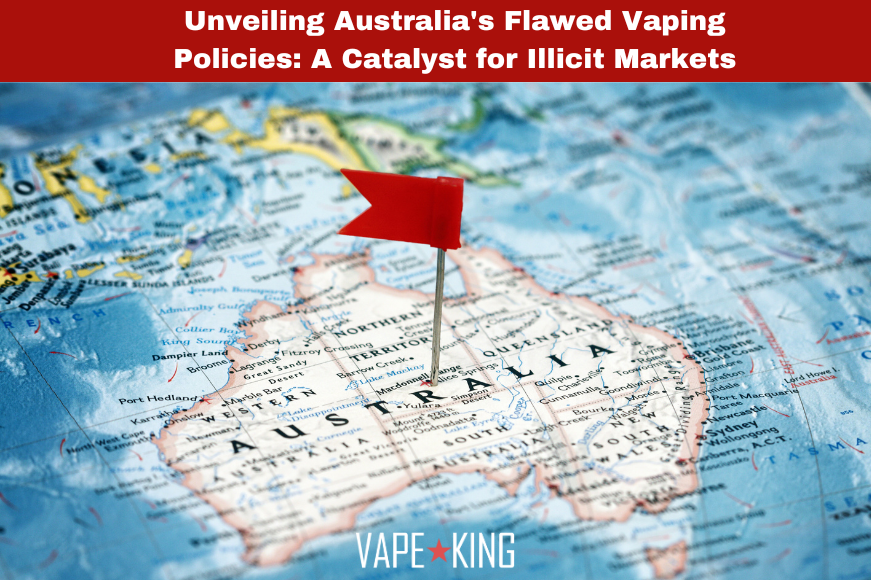Unveiling Australia's Flawed Vaping Policies: A Catalyst for Illicit Markets

In a recent turn of events highlighting the unintended consequences of stringent regulations, Melbourne finds itself at the center of what's being termed the "tobacco wars." A spate of suspected arson attacks on tobacco shops, coupled with the Australian Federal Government's crackdown on illegal tobacco imports, sheds light on a critical oversight in current policy approaches to smoking and vaping.
The most recent incident in Craigieburn, involving a tobacco shop fire and multiple explosions, is potentially linked to the ongoing struggle for control within the illicit tobacco market. This event follows a series of arrests associated with the Finks motorcycle gang, indicating a broader issue of organized crime's involvement in the illegal tobacco trade.
This situation warrants a deeper investigation into the underlying causes driving the surge of illicit markets. The government's stringent stance on vaping and its regulation plays a pivotal role in pushing consumers toward unregulated, often hazardous alternatives. By restricting access to safer nicotine delivery methods like vaping, policymakers inadvertently fuel the black market, providing fertile ground for organized crime to flourish.
Since October 1, 2021, Australians have needed a prescription to lawfully access nicotine-containing vape products, with further restrictions introduced on March 1, 2024, including a ban on importing all vapes without proper licenses and permits.
It's imperative for the Australian government to reassess its approach. By embracing harm reduction strategies, including improved accessibility of vaping products, authorities can undermine the illicit market, safeguard public health, and secure tax revenues. The experiences of countries that have successfully integrated vaping into their public health strategies illustrate the potential benefits of such an approach.
Given the current crisis, it's evident that a reevaluation of vaping regulations is both desirable and necessary. The Australian government must acknowledge that its existing policies contribute to the problems it aims to solve. Embracing a more nuanced, evidence-based approach to nicotine regulation could signify a significant leap forward in public health and safety, undercutting the illicit markets plaguing the nation.
Here's a proposed course of action:
- Encourage smokers to transition to vaping, mirroring the successful harm reduction approach of New Zealand.
- Ensure that adults have access to a wide array of affordable vaping products.
- Implement public health campaigns to provide clear, scientifically grounded information, enabling informed decisions. It's crucial that future initiatives accurately convey the relatively low risks of vaping compared to smoking, dispelling prevalent myths and misconceptions.
By adopting these measures, the Australian government can mitigate smoking-related risks, dismantle illicit tobacco markets, and safeguard public health through informed policymaking and effective harm reduction strategies.
No posts found
Write a review


